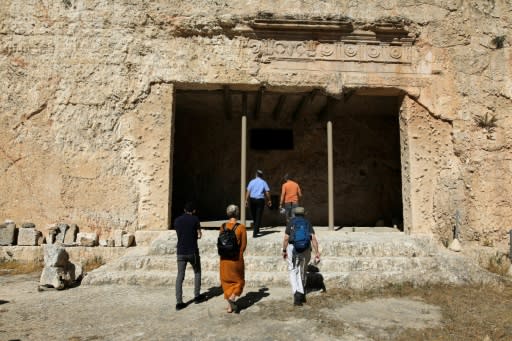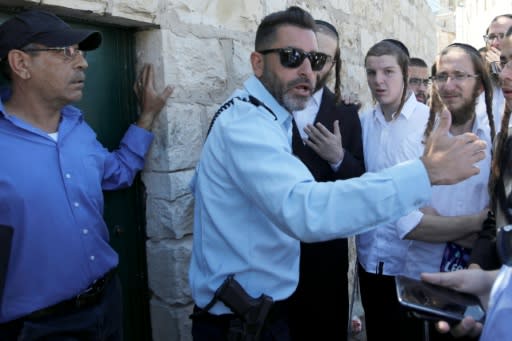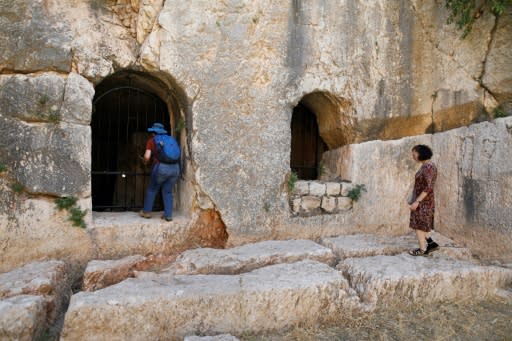Dispute blocks reopening of revered Jerusalem archaeological site
France reopened a revered but long-closed archaeological site in the heart of Jerusalem on Thursday, but a dispute over access immediately caused its re-closure. France, owner of the site in Israeli-annexed east Jerusalem known as the Tomb of the Kings, had agreed to resume public access after having kept it closed since 2010. But concerns that it would become more of a site of Jewish religious pilgrimage than a purely archaeological site immediately reemerged. Around 15 people who had pre-registered online as required were allowed access, but a group of more than a dozen ultra-Orthodox Jews, to whom the site is holy, tried to enter and pray there despite not having signed up as requested. They were prevented from entering since French officials had limited visits to 15 people at once during set times, due to the sensitivity of the site. The ultra-Orthodox who were denied access shoved toward the gate when it was opened. Registered visitors granted access were initially trapped inside and eventually exited through a second gate, accompanied by police. France's Jerusalem consulate said in a statement that due to the scuffle the site would be closed to the public until further notice. "We deplore the violent incidents that took place today at the entrance of the site, during which agents of the consulate general of France in Jerusalem were assaulted," it said in a French-language statement. "We hope that the climate necessary for the organisation of small group visits, according to the procedures defined by the consulate general in Jerusalem, can be established as soon as possible," it said. "In the meantime, we regret to have to suspend the planned visits." - 'Holy place' - One of the ultra-Orthodox, Jonathan Frank, 31, said that religious sites should be open to all. "This is a holy place for Jewish people," he said. "Everywhere in the world ... when Jewish people or (of) any religion want to go and pray in a holy site, they are able to go and pray." The 2,000-year-old archaeological gem had been closed since 2010 due to renovations costing around a million euros ($1.1 million). It is a remarkable example of a Roman-era tomb, considered among the largest in the region. Its unique status, Jewish veneration of the burial site and its location in the disputed east of the city added to complications in reopening it. Archaeological sites in east Jerusalem, where the tomb is located, are often freighted with religious significance and questions linked to the Israeli-Palestinian conflict. Israel occupied what is still mainly-Palestinian east Jerusalem in the 1967 Six-Day War and later annexed it in a move never recognised by the international community. It sees the entire city as its capital, while the Palestinians view the eastern sector as the capital of their future state. There has been a challenge at Israel's rabbinical court -- which rules on matters related to Jewish law and holy sites -- over access to the tomb and France's ownership. Before reopening the site, France sought guarantees from Israel it would not face legal challenges as well as commitments on how visits would be managed. Ultra-Orthodox Jews describe the tomb as a holy burial site of ancient ancestors. The 2,000-year-old archaeological gem had been closed since 2010 due to renovations An Israeli policeman prevents Ultra-Orthodox Jewish men from entering the Tombs of the Kings site in Jerusalem owned and administered by the French consulate because they did not pre-register Ultra-Orthodox Jews describe the tomb as a holy burial site of ancient ancestors




